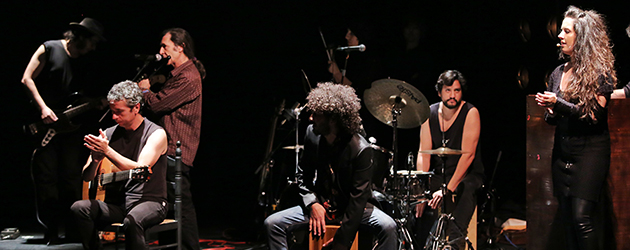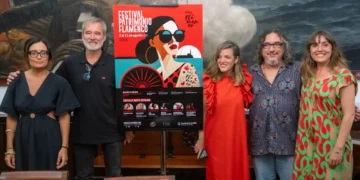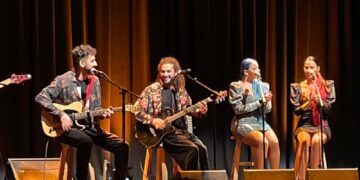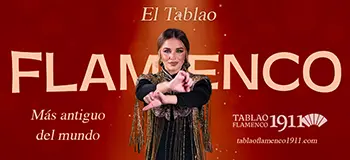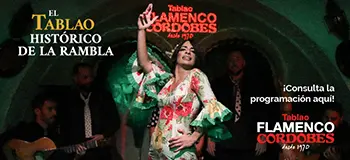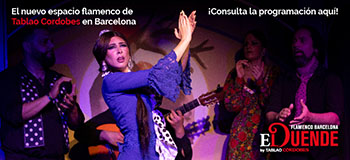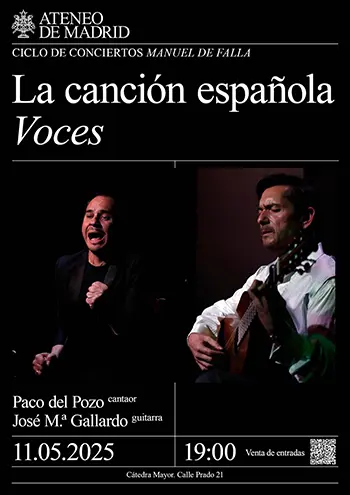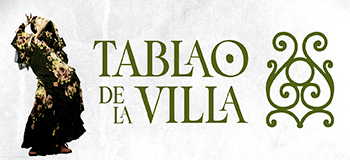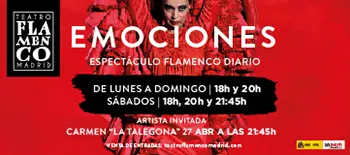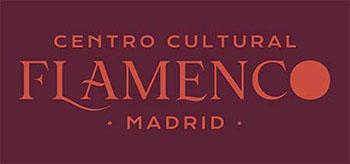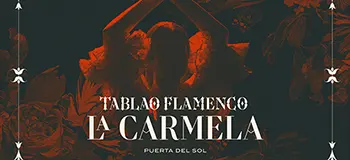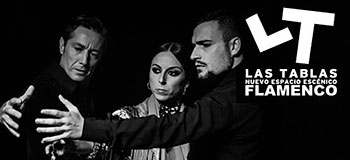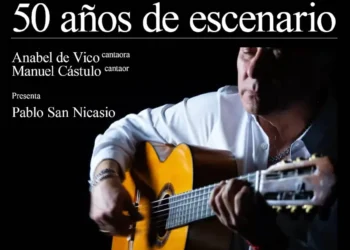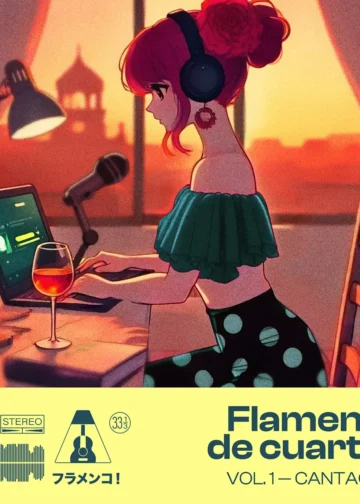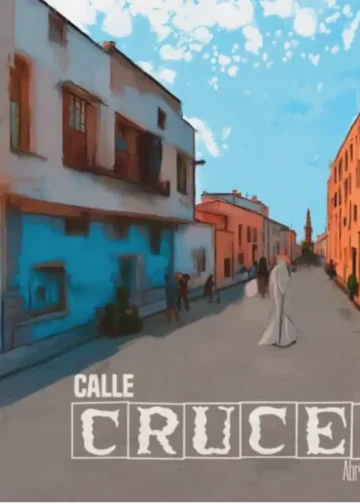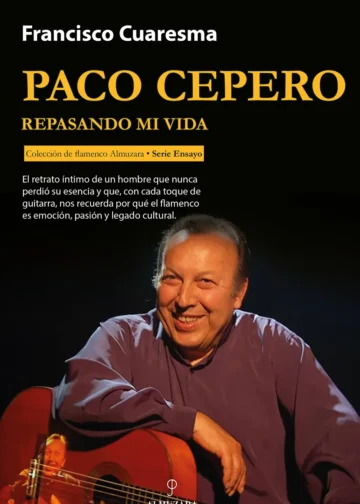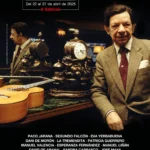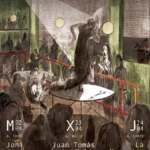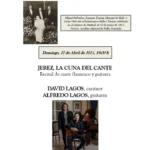José Manuel Gómez Gufi
Photos: Rafael Manjavacas
«A través de la luz» en el Teatro Fernán Gómez – 16/06/2015
Vallellano & The Royal Gypsy Orchestra.
Flamenco Madrid.
It debuted in Madrid. «A Través de la Luz», a flamenco opera by Fernando Vacas. Vacas is a pop producer who lives in Córdoba; his career has brilliant moments, permitting him to be daring and experimental. In 2010 he was behind the recording Howe Gelb “Alegrías” with Raimundo Amador, the participation of Lin Cortés (whom I hope is recognized by readers due to his brilliant recording) and Juan Fernández «Panki» who was a member of the group Cherokee and is the brains along with La Negra.
Fernando Vacas claims to be from a flamenco family, but he opted for the other side, the distorted sounds of Sonic Youth (who collaborated with Enrique Morente in his post-Omega experiments, y Los Pixies (whose only known flamenco adventure is a terrific record cover for one of their recordings illustrated with a flamenco dancer.
The portrait of Fernando Vacas is completed with his facet as discoverer of Russian Red which became a tremendous independent success, and Prim La La, a delightful pop project that hasn't become so well-known. So to call his show «Opera Flamenca» is probably historic provocation.
«A Través de la Luz» is the story of a man who dies for a full three minutes before being revived. The theater fills with incense. The musicians occupy one corner of the stage while Cristina Pareja sings for the dancing of Rosario Vacas with deliberately asymmetrical staging that emulates David Lynch, Lorca, Valdelomar and Julio Romero de Torres. We could choose Lynch, a film-maker with an enigmatic narrative that grabs you with images, light and music. Vacas was a little short on visual resources. There was nothing similar to the karaoke of «Blue Velvet». The dancing of Rosario Vacas was trapped in the delirium between life and death, between flamenco and contemporary. And stage sets were missing, and lighting which for example was used by Antonio Gades. This is where you get the impression that the Fernán-Gómez theater has aged on the inside.
The great advantage therefore, was the music, and there we had the singing of Cristina Pareja convincingly taking on various flamenco forms. There are some interesting rock passages (forget «Omega», there's no distortion here), and a duel of footwork and electronic percussion, incomprehensible for the ear and the eye. There is no need to describe other lacking coordination between the story-teller's eye and the artistic proposal. It's a brave show. The important thing is that flamenco will reach more newbies who will respect it and transform it, inside and out. Another sign that the one who seemed to have died is very alive. I think that must have been the message.



